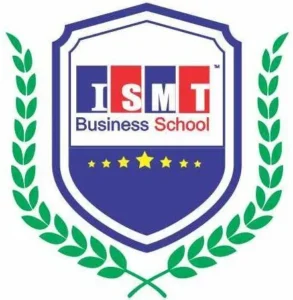Introduction
An MBA in Banking and Economic is one of the most sought-after specializations in the business world today. With rapid advancements in the financial sector, increasing globalization, and the growing need for financial expertise, an MBA in this field offers lucrative career opportunities. Whether you are a fresh graduate or a working professional seeking career growth, an MBA with a job-oriented approach in banking and finance can significantly boost your professional prospects.
This blog will explore what an MBA in Banking and Economic entails, its benefits, career opportunities, and why pursuing this degree from a reputed business school like ISMT Business School can be a game-changer.
What is an MBA in Banking and Finance?
An MBA in Banking and Economic is a two-year postgraduate program designed to equip students with the necessary skills and knowledge to excel in the financial sector. This program covers a wide range of topics, including financial management, banking operations, risk management, investment analysis, financial markets, and fintech innovations.
Key Subjects Covered in the Program
- Financial Accounting and Reporting
- Corporate Finance and Investment Management
- Risk Management in Banking and Financial Institutions
- International Banking and Financial Markets
- Fintech, Blockchain, and Digital Banking
- Mergers, Acquisitions, and Corporate Restructuring
- Regulatory and Compliance Frameworks in Banking
The course curriculum is designed to provide students with practical insights into the banking and financial industry, preparing them for leadership roles in the sector.
Why Choose an MBA in Banking and Finance?
The financial sector plays a crucial role in the global economy, making it a stable and lucrative industry. Here are some compelling reasons to pursue an MBA in Banking and Economic:
1. High Demand for Financial Experts
The banking and finance sector is constantly evolving, requiring professionals who can navigate complex financial environments. An MBA in this specialization provides in-depth knowledge and expertise, making graduates highly sought after.
2. Lucrative Career Opportunities
Graduates with an MBA in Banking and Economic can access high-paying job opportunities in top financial institutions, including banks, investment firms, insurance companies, and consulting firms. Some common job roles include:
- Investment Banker
- Financial Analyst
- Risk Manager
- Wealth Manager
- Corporate Finance Manager
- Financial Consultant
- Treasury Manager
3. Global Career Prospects
The financial sector is a global industry, and professionals with an MBA in Banking and Economic can explore international job opportunities in multinational banks, investment firms, and financial corporations.
4. Opportunities in Fintech and Digital Banking
The rise of digital banking, blockchain, and fintech has created a new wave of opportunities for finance professionals. An MBA in Banking and Economic equips students with knowledge of emerging financial technologies, making them ready for the future.
5. Entrepreneurial and Consulting Opportunities
If you aspire to start your own financial consulting firm or venture into entrepreneurship, this MBA provides the necessary financial acumen, strategic thinking, and risk management skills.
MBA with Job: A Practical Approach
One of the major concerns for students pursuing an MBA is job security after graduation. Many business schools, including ISMT Business School, focus on providing an MBA with a job-oriented approach, ensuring students gain practical exposure through internships, industry collaborations, and placement assistance.
1. Internships and Industry Exposure
A key highlight of an MBA in Banking and Economic is the inclusion of industry internships. Students get hands-on experience working with leading banks and financial institutions, allowing them to apply their classroom learning in real-world scenarios.
2. Campus Placements and Recruitment Assistance
Top business schools have dedicated placement cells that assist students in securing jobs with reputable companies. Leading banks, financial firms, and fintech companies actively recruit MBA graduates specializing in banking and finance.
3. Professional Certifications
Along with an MBA, students can pursue additional certifications such as CFA (Chartered Financial Analyst), FRM (Financial Risk Manager), CFP (Certified Financial Planner), and NISM (National Institute of Securities Markets) to enhance their employability and expertise.
Career Opportunities After MBA in Banking and Finance
Graduates from this program can explore diverse job roles in banking, investment management, corporate finance, and more. Below are some of the top career options:
1. Investment Banking
Investment bankers help corporations, governments, and financial institutions raise capital through investments, mergers, and acquisitions. This is a high-paying career with excellent growth potential.
2. Corporate Banking
Corporate bankers work with businesses to provide financial solutions, including loans, credit, and financial risk assessments. They play a crucial role in maintaining business relationships with corporate clients.
3. Wealth and Asset Management
Wealth managers and asset managers help individuals and institutions manage their investments, providing advisory services on stocks, bonds, mutual funds, and real estate investments.
4. Risk Management and Compliance
Risk managers ensure that financial institutions comply with regulatory guidelines and manage risks associated with investments, loans, and financial transactions.
5. Retail and Digital Banking
With the rise of fintech and digital banking, MBA graduates can explore careers in retail banking, focusing on customer relations, digital transactions, and online financial services.
Why Choose ISMT Business School for Your MBA in Banking and Finance?
Selecting the right business school is essential for maximizing the benefits of an MBA in Banking and Economic. ISMT Business School offers a world-class learning environment with industry-relevant curriculum and strong placement support. Here’s why ISMT is an excellent choice:
1. Industry-Oriented Curriculum
The MBA program at ISMT Business School is designed with inputs from financial industry experts, ensuring students acquire practical knowledge and skills relevant to the job market.
2. Experienced Faculty and Mentors
The faculty at ISMT consists of industry professionals, banking experts, and experienced academicians who provide valuable insights and mentorship.
3. Strong Placement Assistance
ISMT Business School has strong ties with leading banks, financial institutions, and fintech companies, ensuring students get placed in top firms with competitive salary packages.
4. Networking and Alumni Support
Being part of ISMT Business School’s MBA program provides students with access to a vast alumni network, which can be instrumental in career growth and job opportunities.
5. Focus on Fintech and Digital Banking
With the rapid transformation of the banking sector, ISMT Business School integrates fintech, blockchain, and digital banking trends into its curriculum, preparing students for the future of finance.
Conclusion
An MBA in Banking and Economic is a powerful step toward a successful career in the financial sector. With numerous career opportunities, high earning potential, and global recognition, this specialization is an excellent choice for ambitious professionals.
Choosing a reputed business school like ISMT Business School ensures that students receive quality education, industry exposure, and excellent placement opportunities. If you are looking for an MBA with job prospects, an MBA in Banking and Economic from ISMT Business School could be the perfect option for you.
Are you ready to take the next step in your career? Enroll in ISMT Business School’s MBA in Banking and Economic program today and pave the way for a rewarding future!





